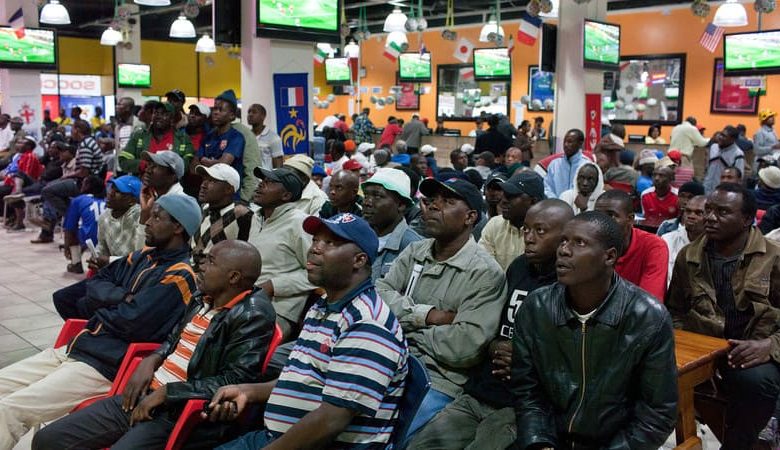
In at least five African nations, many people consider sports betting as a way to obtain consistent income. Some people see sports gambling as a means of escaping poverty. However, critics point out that while poverty, unemployment, and a lack of industry regulations continue to be major issues, sports betting is growing in Africa. Gambling Africa Norm
Students, politicians, employees, and government officials are all sports gamblers in most African countries.
There is limited information about sports betting from most countries in Africa. However, data from a few nations indicate its rising popularity. In recent years, online gaming has increased significantly. The demand for internet-based entertainment and an increase in the use of mobile payments has caused the growth. Soccer matches in Europe are the subject of a lot of betting.
Take for instance, In South Africa, Sports betting grew by 14% per year between 2008 and 2016. The National Gambling Board in the country reported that just 10 years ago, casinos held an 80% share of the country’s gambling market. Today, online sports betting makes up 45% of the market. However, the number of South Africans who gambled fell from 57 percent to less than one-third of the country’s adult population.
In Zimbabwe, for example, most people hardly make $100 a month through the normal sources of raising income.
Sports betting here has become a major income earner even for those who are in formal employment. The problem is that it becomes addictive and some lose their salaries to betting.
said Japhet Moyo. He is secretary-general of the Zimbabwe Congress of Trade Unions. “
African gamblers frequently anticipate covering daily expenses using their profits from gambling. Philo Ragada is an unemployed schoolteacher in Harare, Zimbabwe’s capital. He bet on England to beat Senegal in a World Cup game. Ragada supported the African team but said he wanted England to win because “that’s where my money is.” His winnings, he said, would be “enough for tomorrow’s bread and tomatoes.”
Wale Babalola, a college graduate in the Nigerian city of Lagos owns eight betting shops after once struggling to find a job.
If not for betting, I wonder how some people will survive in this country.
said Babalola.
There are growing concerns about the industry. Reagan Wamajji is a researcher with the Uganda-based Center for Policy Analysis. He said there should be campaigns against gambling, especially sports betting.
However, it is such a lucrative business that meaningful reforms might be hard to push.
he said.
Earlier this year, a legislative group from Uganda proposed banning daytime gambling. Kenya on the other hand has reported a decline in gambling revenues since 2019. This can be attributed to the county’s move to introduce newer strict taxes on all bets, including the tax on stake. Several gambling companies had their licenses revoked by the government as well during the same time and in subsequent years.
According to research by a Kenyan body, between 2019 and 2021, the percentage of gamblers who thought gambling was a decent method to generate money decreased by half, to 11%. Even more shocking is the fact that college students have joined the club and even gambled with their tuition money.
Industry experts continue to argue that people need to change some beliefs that gambling is a source of earning a living.
Gambling should be approached as a means of entertainment and not percieved as a form of income generation. Punters should be encouraged to only gamble what they can afford to loose and when the fun stops, “STOP”. Industry players should put lots of emphasis on responsible gaming and avail self exclusion options to problem gamblers. Gambling Africa Norm
Felix Mulandi, 22Bet Kenya
Conclusion
African governments have a responsibility to make sure young people on the continent have access to the education and training they need to lead sustainable lives. This will help to ensure that individuals regard gambling differently and not as a way to become rich quickly. Gambling should be considered a source of entertainment rather than a means of earning a living.
Those in authority should also make sure that the laws that are currently in place support this goal and that no sportsbooks or casinos support any advertisements that represent gambling as a source of income.
editor@igamingafrika.com
Subscribe to our channel on Telegram here for timely live updates on all happenings in the iGaming space in Africa. You may also join our group on Telegram here and grow your networks by interacting with all players in the iGaming sector in Africa Gambling Africa Norm



















